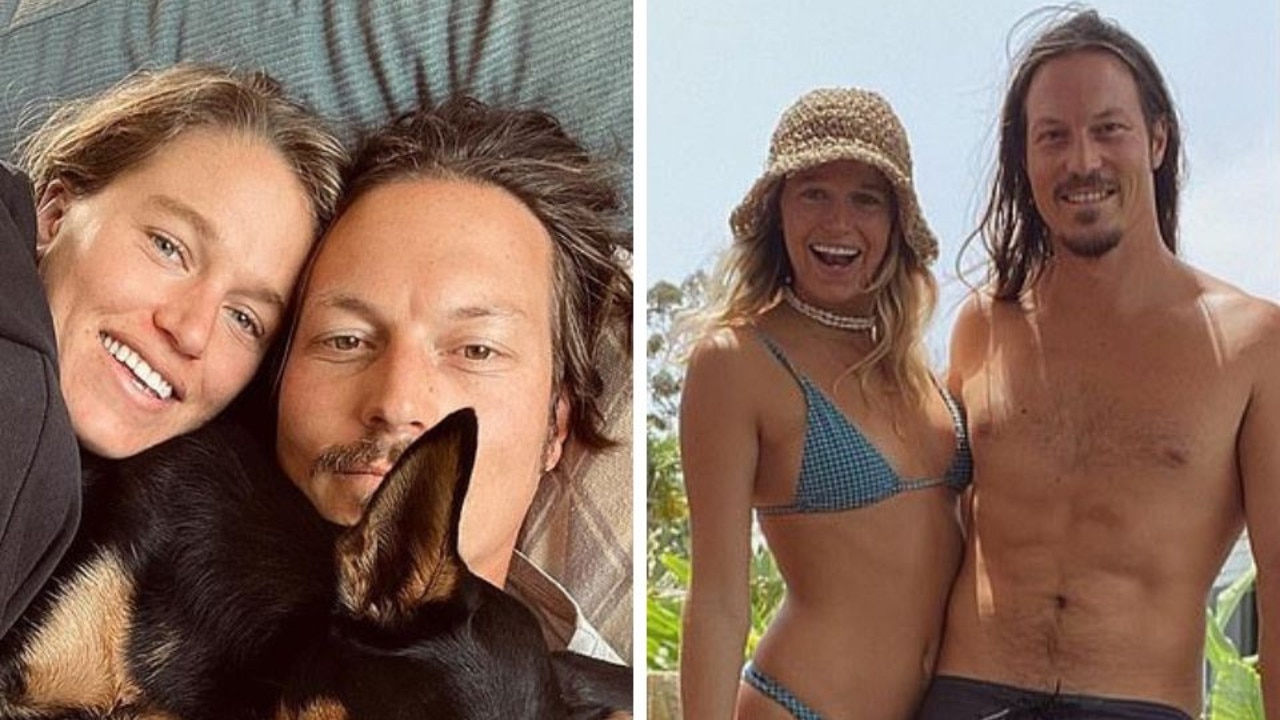Incredible life of soldier, author Chris Allen
NOT many best-selling authors have truly lived the part, but this Australian has — from ex-soldier to aid worker and even counter-terrorism expert.
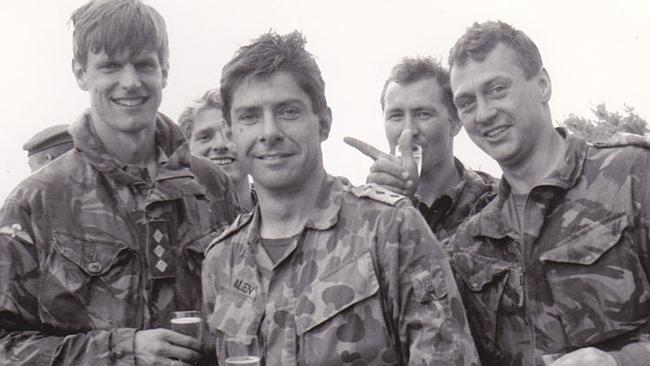
Lifestyle
Don't miss out on the headlines from Lifestyle. Followed categories will be added to My News.
IT’S Perth, WA, in the early 70s. All you think about is playing the drums, maybe being a writer of some sort, and essentially being a bit of a larrikin.
Little do you realise one day you will be staring down the barrel of four best-selling novels, a potential international movie deal, and yes, the barrel of a rifle. Then you come across a man — or rather, two men — who essentially change the course of your life.
One of them is licensed to kill, and the other one wrote him the Walther PPK with which to do it.
Bond and the man behind the series of spy novels, Ian Fleming, introduced Chris to the world of espionage, duty, danger and bucking the system while serving it. Before you could say ‘shaken, not stirred’, Allen was reading every 007 book going, then every author within the spy/thriller genre. Between a diet of Bond, George Smiley and co, a healthy dose of Bodie from TV series The Professionals, and Allen’s own life experience, a writer emerged.
Reviews of Allen’s books say “the aftertaste of blood and gunmetal makes it clear these books are written by a real soldier”, and “if you want to read about the way we are doing battle in the 21st century, get into Chris Allen”.
If we fast-forward to 2016, and look up his books Defender, Hunter, Avenger and Helldiver on Amazon, the Top 100 ebook List is a part of all their listings. And now a movie deal is in the pipeline, although details can’t be released at this stage.
Fleming — a misogynist, homophobe and racist — was an interesting choice for inspiration. But, as Allen says, for him, the biggest part of Fleming’s influence on his own writing “was not his attitudes, but the action — and the idea of service to country”.
“Fleming of course served during World War II in Naval Intelligence, and learning this about him led me on to other writers who had also been in the military — Frederick Forsyth, Jack Higgins, even Sir Arthur Conan Doyle,” he said. “I wanted to be a writer, but I also needed something more, and this — the military — was the something more.”
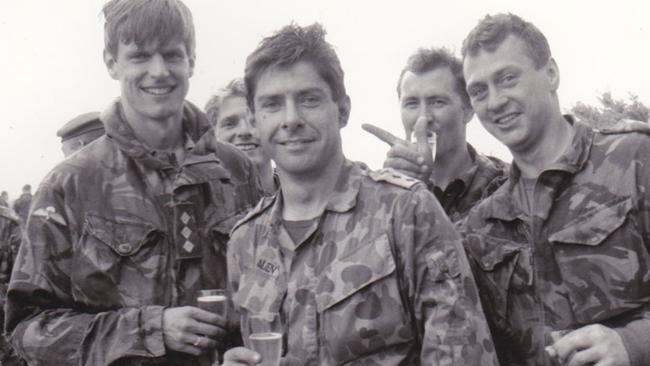
Fleming also had a poor attitude toward women, having a tendency to think anyone other than the British (and Americans at a pinch) were subhuman, and a fondness for mandatory imprisonment for homosexuals.
“Those issues are completely on the nose,” Allen said. “It’s not who I am, so it’s not what my stories were going to be either. I have had my own life experiences — so my character may have been influenced at his core by the [Bond] concept, but he needed to be deeper. I’m writing for a modern audience, and I am also writing for me. So yeah, I drew from Fleming, but then I went off on my own approach.”
His own approach wasn’t for the faint-hearted, joining the Australian Army as an officer cadet, and being selected to serve as a paratrooper in the elite 3RAR battalion, then with the British Army’s 5 Airborne Brigade.
Having seen active service across four continents, breaking nearly every bone in his body in the process, Allen retired with the rank of Major. He went on to work in East Timor as a consultant with an international aid agency, with the AFP, as head of security for the Opera House post-9/11, and Sheriff of New South Wales.
“The authors I was reading had come out of World War II, or Korea and Malaya … their stories rang true, and I wanted to be able to write that way too,” he said.
Allen’s protagonist is Alex Morgan, agent at Interpol’s fictional black ops division, INTREPID. He’s ex-Australian military, loves a beer rather than a martini, isn’t particularly posh, and is usually found in the pub and in a pair of well-worn RM Williams. The antithesis of a dinner-jacketed Bond, in fact.
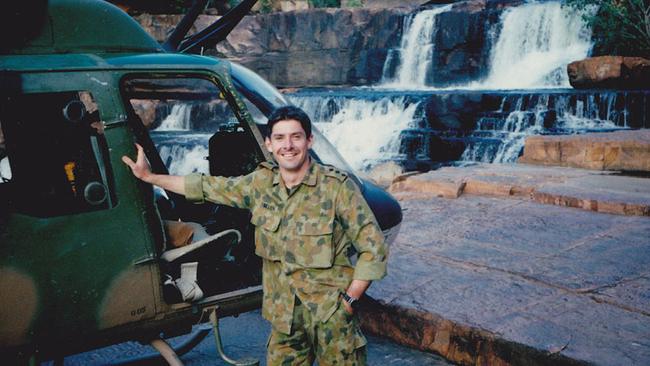
So far he has evacuated aid workers in Africa, hunted down Serbian war criminals, human traffickers, and in his latest effort, Russian oligarchs. In the latter two, fellow agent Elizabeth Reigns (Chinese American — Fleming would be rolling in his grave) has been there, kicking enemy butt and saving his in the bargain.
Fleming may have been the inspiration, but he was not the end point. Because Allen has, to paraphrase John le Carré, brought the spy story in from the cold by creating an international agency without borders. His storylines reflect gritty, real current events rather than the over-the-top themes of some spook series, including Bond.
He has also created a hero who isn’t threatened by a woman working alongside him in an equitable partnership, without that killer disease of the spy novel, bimbo-itis.
Both writer and hero are about to take on their most personal test yet. Allen’s new novella has his hero helping an American mate and ex-ranger (US military elite), now homeless, who has witnessed a crime of state proportions. It deals with the very hot potato of veterans returning home from war zones, coping with the mental challenges that can arise from active service. For Allen, it is a testimony to some of his own mates; those who returned as shadows of the men they were, only to find “normality” just too tough.
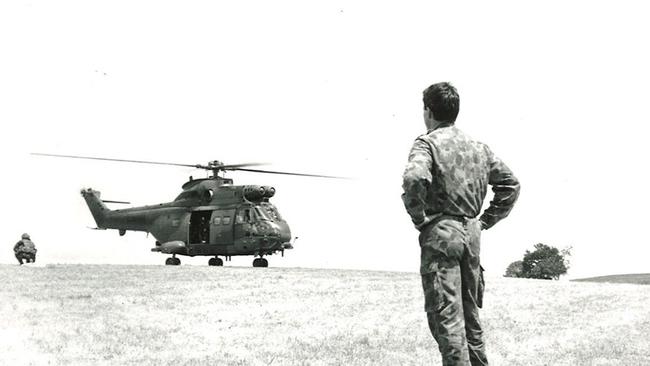
“It’s absolutely soul-destroying in 2016 that this is where we sit in terms of lack of support for our veterans. Homelessness is a massive issue both here and in the US, as a result of PTSD,” he said. “Vets can’t hold down jobs, they can’t hold down families, people prey on them. Substance abuse is becoming increasingly prevalent. I see this, and the rapid rise of easy-to-obtain drugs, as two of the biggest societal challenges we face.
“It’s terrible and we need to take action.”
Veterans Off The Streets, an organisation set up to address and support former ADF members who are at risk of homelessness, has made Allen its inaugural ambassador.
Writers of spy and thriller novels are perceived as either moody, mysterious creatures skulking in the shadows, or like Matthew Reilly, the Australian who has sold so many books his Ferraris have to be stacked in his garage rather than parked. The genre gets a bad rap, sometimes rightly so. Some of the books are badly written, or just plain bad.
So it’s great to see an ordinary bloke on the cusp of enormous international success for writing good, suspenseful books that are action-packed, female-friendly, funny, and come from a perspective of “been there, done that, can authentically wear the hero T-shirt”.
The name’s Allen. Chris Allen. Licensed to thrill.
Originally published as Incredible life of soldier, author Chris Allen


